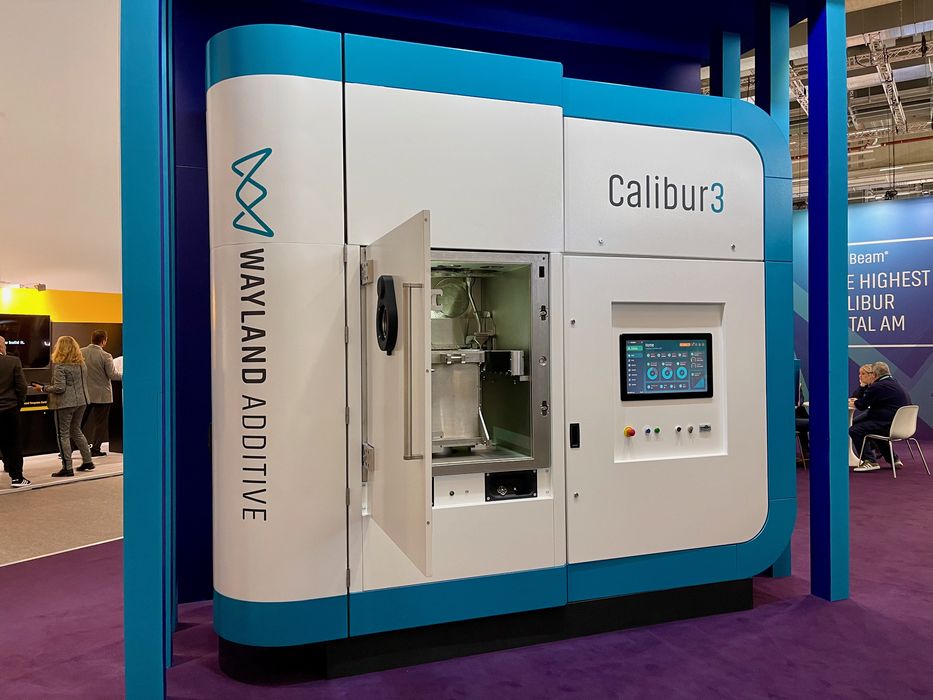
Wayland Additive has been busy expanding their operations.
In a recent discussion with company representatives, we learned more about the company’s plans for expansion.
The UK-based operation produces metal 3D printers using their proprietary NeuBeam process. NeuBeam is an electron-beam process, similar to what’s used in other systems.
However, there’s a big difference: NeuBeam neutralizes the electrical charge, and thus eliminates many of the issues with normal electron beam printing. That’s where the name of the process comes from. Because of this feature, the process unlocks more uses and materials, beyond that of traditional electron beam metal 3D printing.
Wayland Additive has packaged up the process in the form of their flagship 3D printer, the Calibur3. It’s a large unit with a reasonable build volume suitable for many metal part applications.
The company has clearly shifted from the development stage to sales expansion, as they haven’t lately announced any new technological advancements. However, they did tell us they are “very busy with shipping”, indicating they are selling many units. Most of their sales are made directly from the company, but they do have one reseller in Japan. I had the impression they may partner with additional resellers in the future.
Their sales footprint now covers UK, USA, Canada and now Germany. They’re finding the main buyers seem to be from the oil and gas industry, which are printing parts in carbon steel. They have also launched tool steel in Germany, and are starting work on printing molybdenum.
This is quite interesting because carbon steels tend to be challenging to print with the more common LPBF processes, so it may be that NeuBeam has found its market niche. Their process can apparently handle unusual metals that other processes cannot.
The company told us they tend to sell complete solutions, but do not sell materials, which must be obtained from third parties. They have been approached by a number of customers with peculiar requests, and this suggests word is getting around that their equipment can handle a wide variety of metals beyond those usually handled by LPBF systems.
Wayland Additive will work with the customer to determine the process required to successfully print the material, if it’s possible.
It seems that Wayland Additive has hit on a highly useful solution for industry, and now it’s starting to pay off.
Via Wayland Additive
